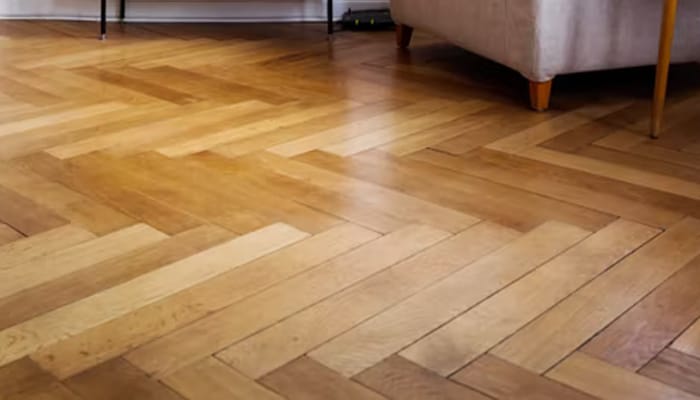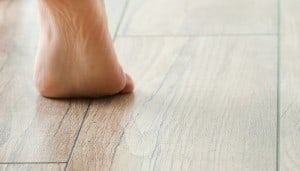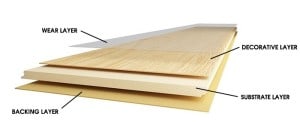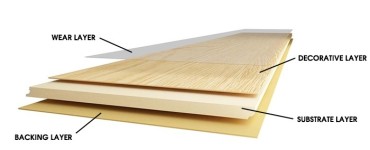Laminate flooring is a popular choice for many homeowners, but there is some concern that it may be toxic. Some of the chemicals used in the manufacturing process can be harmful if they get into the air or water.

Some people argue that because of the chemicals used in the manufacturing process, laminate flooring can be harmful to your health. Others say that because laminate flooring is a composite material, it is not as harmful as other types of flooring.
Materials Used in Laminate Flooring
Laminate flooring is made of materials that can be dangerous to humans and pets. The laminate itself is made of a synthetic material, which can release harmful fumes if it catches fire.
In addition, the adhesive used to attach the laminate to the floor can also release harmful fumes. These fumes can cause respiratory problems in humans and pets, and can be fatal in high concentrations.
Toxic Chemicals Found in Laminate Flooring
The chemicals used in laminate flooring can be toxic to human beings. Formaldehyde, a gas that is released from some types of laminate flooring, is known to cause health problems such as asthma and other respiratory issues. It can also cause skin irritation and even cancer.
Other chemicals that may be used in laminate flooring, such as phenol-formaldehyde resins and benzene, can also be harmful to humans.
Health Risks Associated with Laminate Flooring
There are a few health risks associated with laminate flooring. One is that the flooring can release volatile organic compounds (VOCs) into the air. These compounds can cause respiratory problems and other health issues. Laminate flooring can also create dust, which can cause allergies or asthma attacks.
Alternatives to Laminate Flooring
There are a few alternatives to laminate flooring that can provide homeowners with a similar look and feel for their home.
Hardwood Flooring
Hardwood flooring is a better alternative to laminate flooring because it is made of natural materials, while laminate flooring is made of synthetic materials. This means that hardwood flooring is less likely to release harmful chemicals into the air, whereas laminate flooring may release harmful chemicals, including formaldehyde.
Carpet
Carpet flooring is a better alternative to laminate flooring because it does not contain any harmful chemicals that can cause respiratory problems. Carpet also acts as a natural air filter, trapping dust and other allergens before they can cause problems for people with allergies or asthma. In addition, carpet is warmer than hard surfaces such as laminate, and can help to keep a room warmer in the winter.
Tile Flooring
There are a few reasons why tile flooring is often seen as a healthier alternative to laminate flooring. First, tile is a much harder surface than laminate, making it less likely to trap and hold dirt and dust particles. Additionally, tile is easier to clean and disinfect than laminate, making it a better choice for families with children or pets.
Vinyl Flooring
Vinyl flooring is made of PVC, which is a more environmentally friendly material than laminate flooring, which is made of formaldehyde. Additionally, vinyl flooring does not release any harmful chemicals into the air, while laminate flooring can release harmful chemicals, especially if it is heated or reacted with chemical cleaning agents.
Bamboo Flooring
There are a few reasons why bamboo flooring is a better alternative to laminate flooring. First, bamboo is a natural material, while laminate is made from synthetic materials. Bamboo is also a harder material than laminate, so it is less likely to scratch or dent. Additionally, bamboo is a sustainable resource, whereas laminate is not.
Cork Flooring
Cork is made from the bark of the cork oak tree, which is sustainably harvested. Laminate flooring is made from synthetic materials, which can release harmful chemicals into the air. Cork flooring is also a good choice for people with allergies because it does not contain any allergens.









